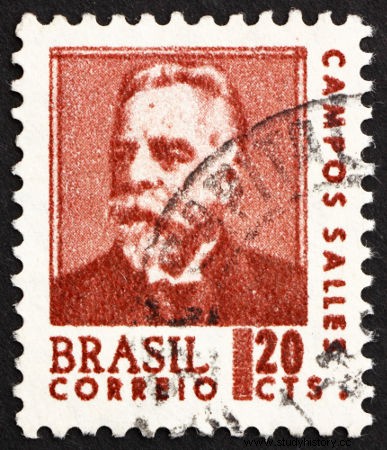
Coronelismo is a typical Brazilian sociopolitical practice of the early 20th century, in the period called the Old Republic (1889-1930), when the so-called “colonels” exercised local power over the lower strata of society in order to guarantee votes in exchange for favors from local, state and federal political spheres.
ORIGINS
The origins of coronelismo date back to the 19th century, with the development of the National Guard, when positions of trust were appointed according to relationships of influence and exchange of favors, therefore, great landowners who were loyal to the government were given the post of colonel to exercise local control. As time progressed, every local political boss came to be called colonel by the sertanejos. Regarding the colonel's power, we can say that:
“(...) The colonel would be an eminently electoral element, whose political leadership was exercised as a result of his economic leadership; and the argument for his power to be legitimized would be in the enticement of voters and in the preparation of elections. However, at the local level, the colonel would be an organizer of his world, inseparable from agrarian society, protector of the "peasant", for whom he was the protector and boss, and articulator of the local society to the political, economic and social system. In this way, the colonel's power would derive more from his traditionally recognized prestige and social honor than from his economic situation”.|1|
Coronelismo, therefore, developed throughout the 19th century, existing both in rural areas and in cities, was the result of the inequalities and precariousness existing in Brazilian society and found in the period of Old Republic the necessary conditions to prosper.
HALT VOTE AND EXCHANGE FAVORS
Electoral development at municipal levels allowed colonels to expand their powers, as they acted directly in gathering votes for candidates who had support from the state or even federal government. As the colonels generally had considerable military strength, they could use force and fear to coerce the population into voting for a particular candidate. It is important to remember that voting during the Old Republic was not secret, which allowed the colonels to have greater control over voting. From the enticement of votes, the colonels guaranteed a series of favors that could expand their political and/or local economic control, but which could also include simple favors such as “a pair of shoes, a place at the hospital or a teaching job”. |2| .
The influence of coronelismo was also marked in this period due to the practice of the governors' policy initiated by the president Campos Sales (1902-1906), which was nothing more than the use of the exchange of favors and the halter vow as a way of guaranteeing the power of the oligarchies, which were the groups that exercised political and economic control in that period. The power of the coroneis and the influence of coronelismo varied from region to region of Brazil, so the extent of the coroneis' power was never uniform. There are examples where the influence and power of the colonels were very strong, as in the interior of Bahia and other regions of the Northeast, but there were also regions where this power was dependent on a more complex structure, which could be of the state governments themselves or of political parties. local politicians.
Coronelismo as a sociopolitical practice weakened after the 1930 Revolution, when the changes implemented by Getúlio Vargas, such as the dissolution of municipal councils and state congresses, in addition to the appointments of Getúlio Vargas' trusted men as interventors (governors) for the States, generated a centralization of power, which ended up weakening the Oligarchies and, consequently, also the colonels.
Notes
|1| FORTUNATO, Maria Lucinete. Coronelismo and the image of the colonel:from symbol to simulacrum of local power. 2000. 225 f. Thesis (Doctorate in Social History) – Institute of Philosophy and Human Sciences, State University of Campinas, Campinas, p. 29.
|2| FAUST, Boris. History of Brazil. São Paulo:Publisher of the University of São Paulo, 2013, p. 226.
*Image Credits:Boris15 and Shutterstock
by Daniel Neves
Graduate in History
